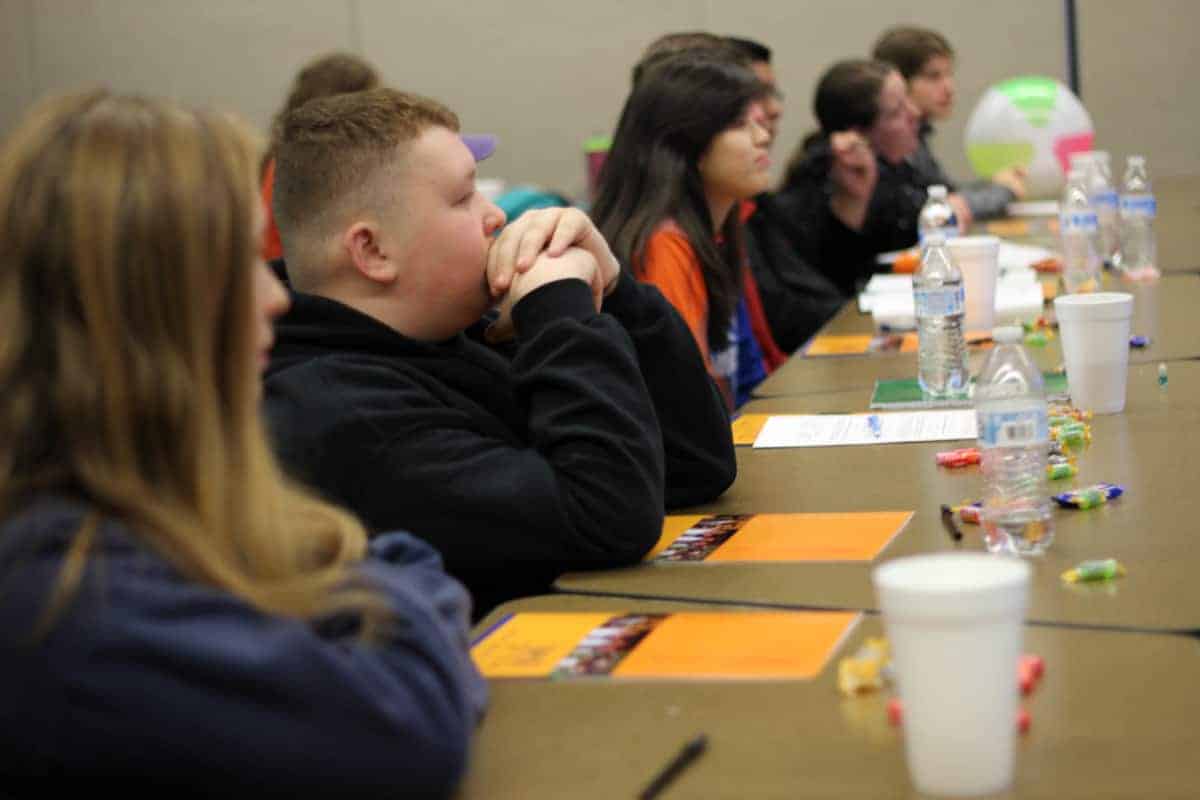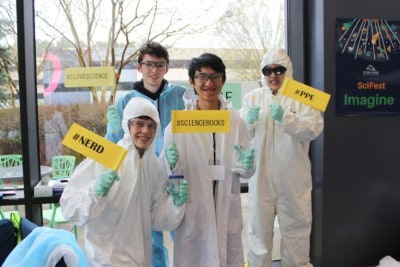Last month, eight middle and high school students gathered at Catawba College in Salisbury to learn how to become advocates in tobacco prevention. Instead of listening to a lecture by adults, students received advocacy training from fellow North Carolina high school students who were part of an organization called Youth Empowered Solutions (YES!).
YES! presenters walked students through everything from issues like racial equity, to how to write letters to the editor, to using Photovoice — a photography method to identify local problems and inspire change. In collaboration with the Region 4 Tobacco-Free Alliance, the YES! training focused on youth tobacco prevention, including e-cigarette use.
“I think it’s super prevalent at our school,” said Sawyer, one of the YES! student facilitators and a senior at Asheville High School. “I think, you know, seeing how addicted some of my friends really are to nicotine has been transformative in the way that I look at tobacco and e-cigs in my community.”
Sawyer said she also has a twin sister who Juuls (the term for vaping the Juul brand of e-cigarette).
“She tells me that she’s quit three times now — but if you have to quit three times, it’s not really quitting,” she said. “Also, because there is a lot of peer pressure … I think it’s really easy to get involved and have those misconceptions about what really is in Juul and what you’re putting into your body when you do that kind of stuff.”
Across the board, students expressed that there was an information need on the consequences of vaping.
“They don’t know how unhealthy it is because of the companies not telling them, basically,” said YES! facilitator Roz-Kareem, a 12th grader from Phillip O. Berry Academy of Technology in Charlotte. “Educating them within the schools would be a good idea, too.”
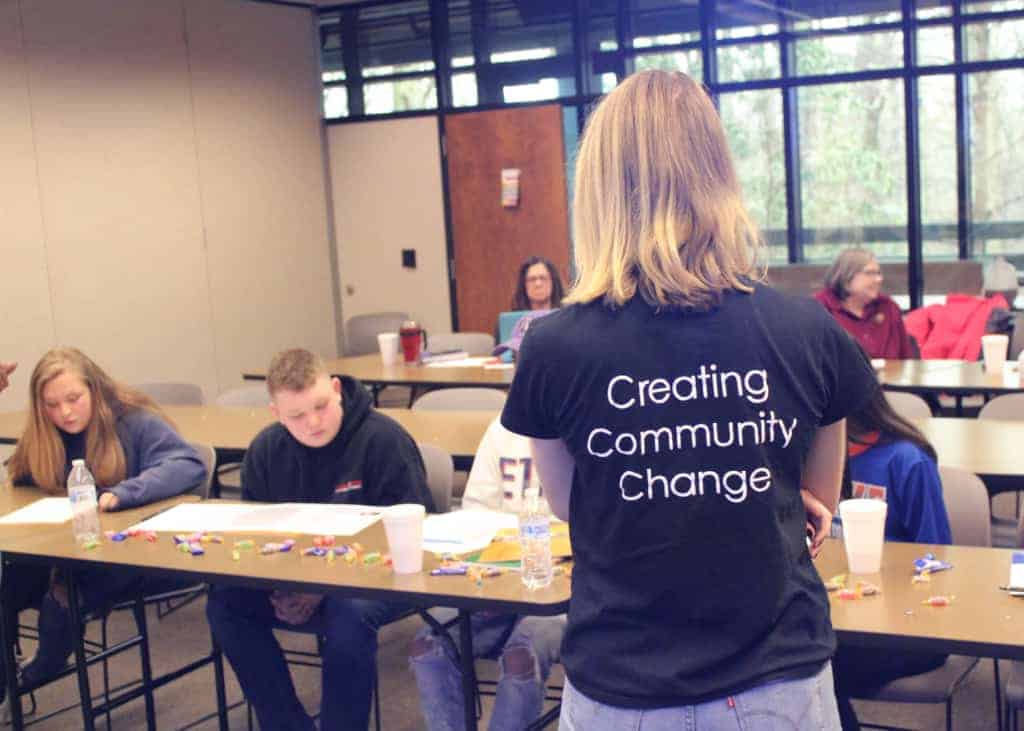

The training provided information on relevant tobacco issues, like which state representatives receive money from tobacco companies, Tobacco 21 laws, and e-cigarette advertising tactics.
“We feel like it’s the responsibility of young people to inform other young people,” said YES! Program Coordinator Erica Marshall. “Peer-to-peer training makes the largest impact because we’re the adults, but we’re not the experts. They’re the experts of their experience. They can create the training agenda. They can create the presentation. And they choose to do it.”
The four YES! student facilitators all attend different North Carolina high schools and collaborated on the tobacco prevention training through virtual calls (not to mention, were willing to host the training session on a Saturday). Before organizing training materials, the presenters worked with YES! leadership to explore the landscape of tobacco prevention in the state — learning who the big players are, what the big issues are, and what their peers are talking about and experiencing in terms of e-cigs and Juuling.
“The cool thing about this presentation is that it’s formatted so that any of our youth teams across the state can pick it up and go facilitate it,” said YES! Senior Program Manager Alex Hollifield. This is significant because youth e-cigarette use is not only a statewide issue, it’s a national one.
The 2018 National Youth Tobacco Survey found that 1.5 million more students used e-cigarettes in 2018 than in 2017. The survey, carried out by the FDA and the Centers for Disease Control and Prevention (CDC), highlighted a dramatic surge in youth e-cig use, with 78% more high schoolers and 48% more middle schoolers vaping last year.
“I see this frequently, everywhere. In my schools, in my family,” said Cedra, a YES! student leader and 11th grader at Asheville’s School of Inquiry and Life Sciences, of the tobacco products. “I think it’s really important to educate youth about this so they can bring their skills to their communities and be able to help for the better good.”
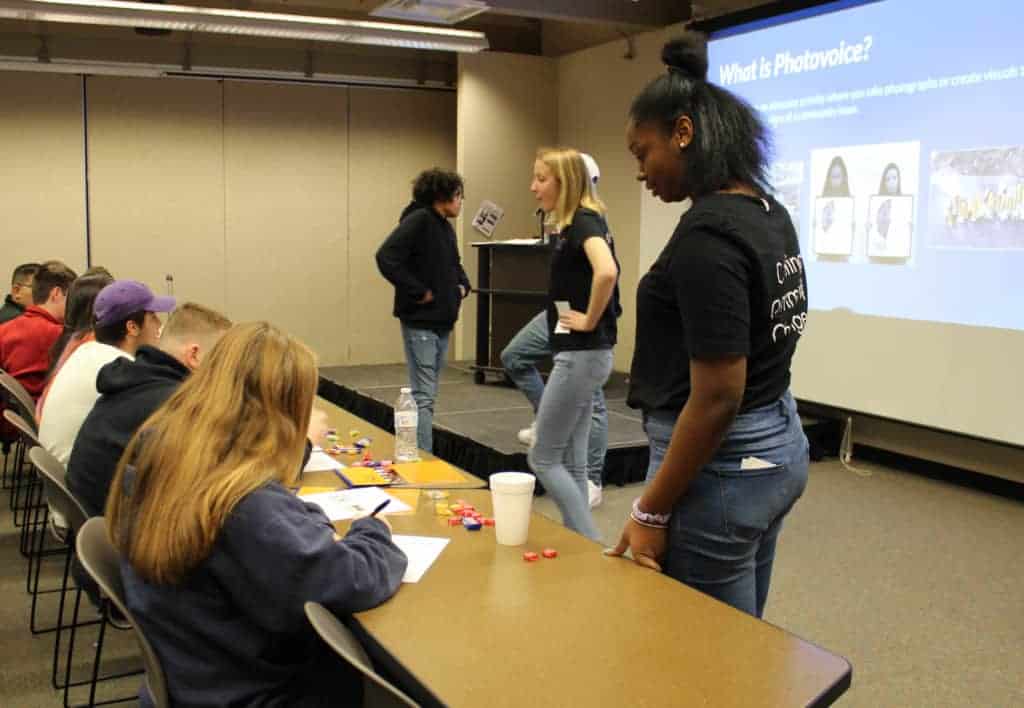

Marshall said e-cigs have been on the radar for YES! over the past two years, and for students participating in the training, seeing peers using e-cigs had become a norm.
“Nowadays, you can just go anywhere and everybody’s doing it,” said Nicholas Alley, an eighth grader at Southeast Middle School in Salisbury. “They just think: ‘Everyone else is doing it, so I should do it.'”
But Alley said he knew vaping wasn’t without consequences. In mock presentations, when students broke off into groups to share ideas on how they felt it would be best to curb e-cigarette use in schools, Alley’s group pushed for more information on e-cigarettes for students.
The second group posed other solutions, including implementing harsher punishments for e-cigarette use on school campuses and offering services for students who may be addicted to nicotine.
“At my school, we have some students who always seem to get in trouble multiple times, ” said Luke Fountain, a sophomore at Fred T. Foard High School in Catawba County. “Personally, I feel they have become somewhat addicted to nicotine and that punishment doesn’t do enough, [so] they need additional help.”
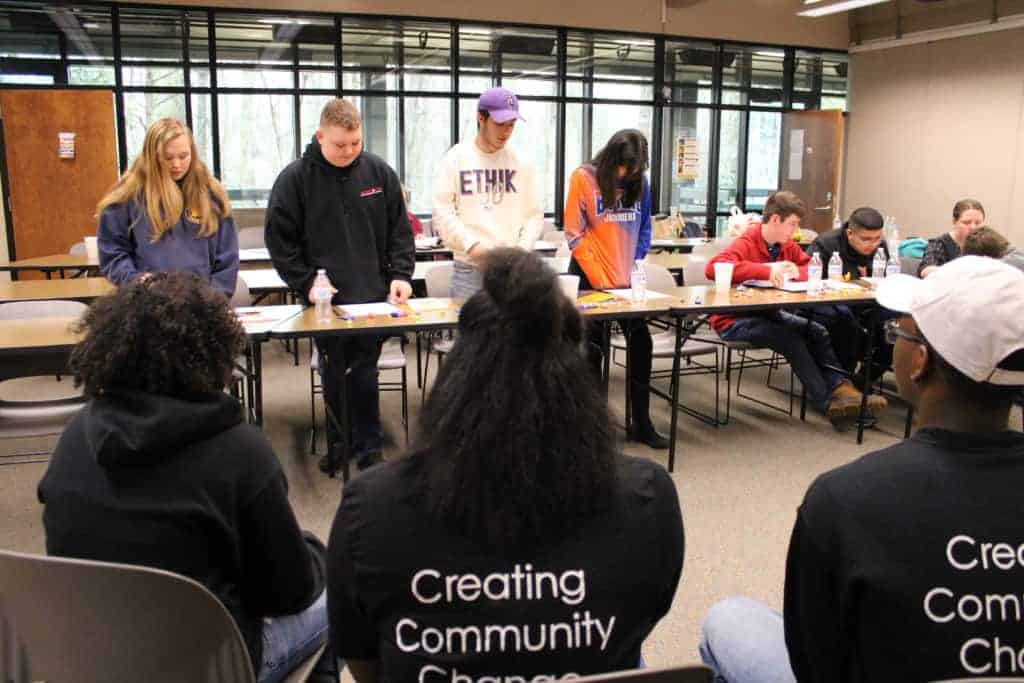

Sawyer said she hoped the training would give students the skills and resources they need to go into their communities and create change around things that they’re passionate about, or tobacco and Juuls in general. YES! student leaders echoed the same sentiment, in part, because a strong interest in advocacy work is what drew them into the organization in the first place.
“Why I got into YES! is because I wanted to make a change in my community,” said Mason, a YES! presenter and 10th grader at West Charlotte High School. “I was also more excited to be a part of something bigger than myself.”
His co-facilitator, Roz-Kareem, expressed a similar reason for joining YES!: “I wanted to be a part of an organization that actually does something,” he said, adding that he hoped after the presentation, participants felt capable of advocating, too.
“I’m definitely going to be using the way to present cases or policies to people who can approve of them,” said Luka Kinard, a sophomore at High Point Central High School, on methods to reach legislators.
Due to his own prior challenges with Juuling, Kinard has publicly spoken across the state at tobacco prevention events, but he said he joined the YES! training to enhance his speaking engagement skills and learn more about advocacy.
“My whole overall goal with talking to teens and schools and everything is to raise awareness for healthier ways to cope with anxiety and depression,” Kinard said. “I would love, as my overall vision for this, to one day have a nonprofit organization to help and support teens just through everyday struggles as well.”
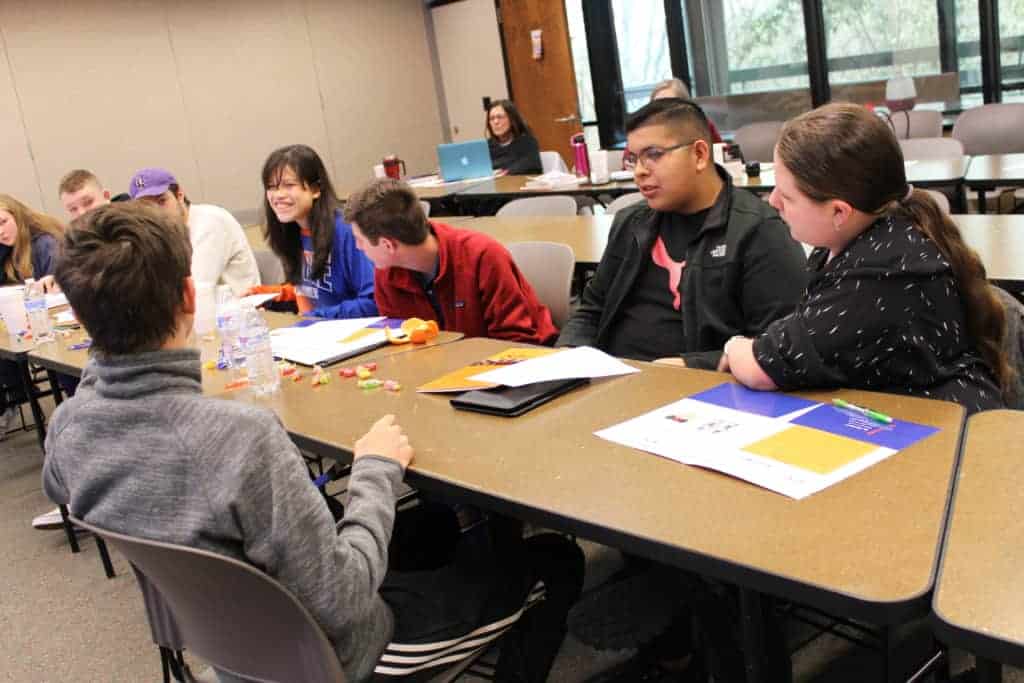

As a result of the training, Hollifield said she wanted students to realize that they have the ability to influence state or local policy through advocacy and action planning — and that positive outcomes on local levels with YES! direct action are proof that it works. She also firmly believes in the power of young people’s voices to create change.
“If we look at every single major social justice movement that has happened in the United States’ history, youth were at the forefront of those,” Hollifield said. “And I think a lot of times, adults need to give them more credit for the work that they’re doing. Youth leadership really is the only way to move forward as a country, because all of these issues are impacting them the most.”
Editor’s note: Due to YES! policy, YES! student facilitators are identified by first names only.
EducationNC published a series on Juuling last year. View it here.
